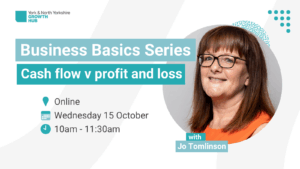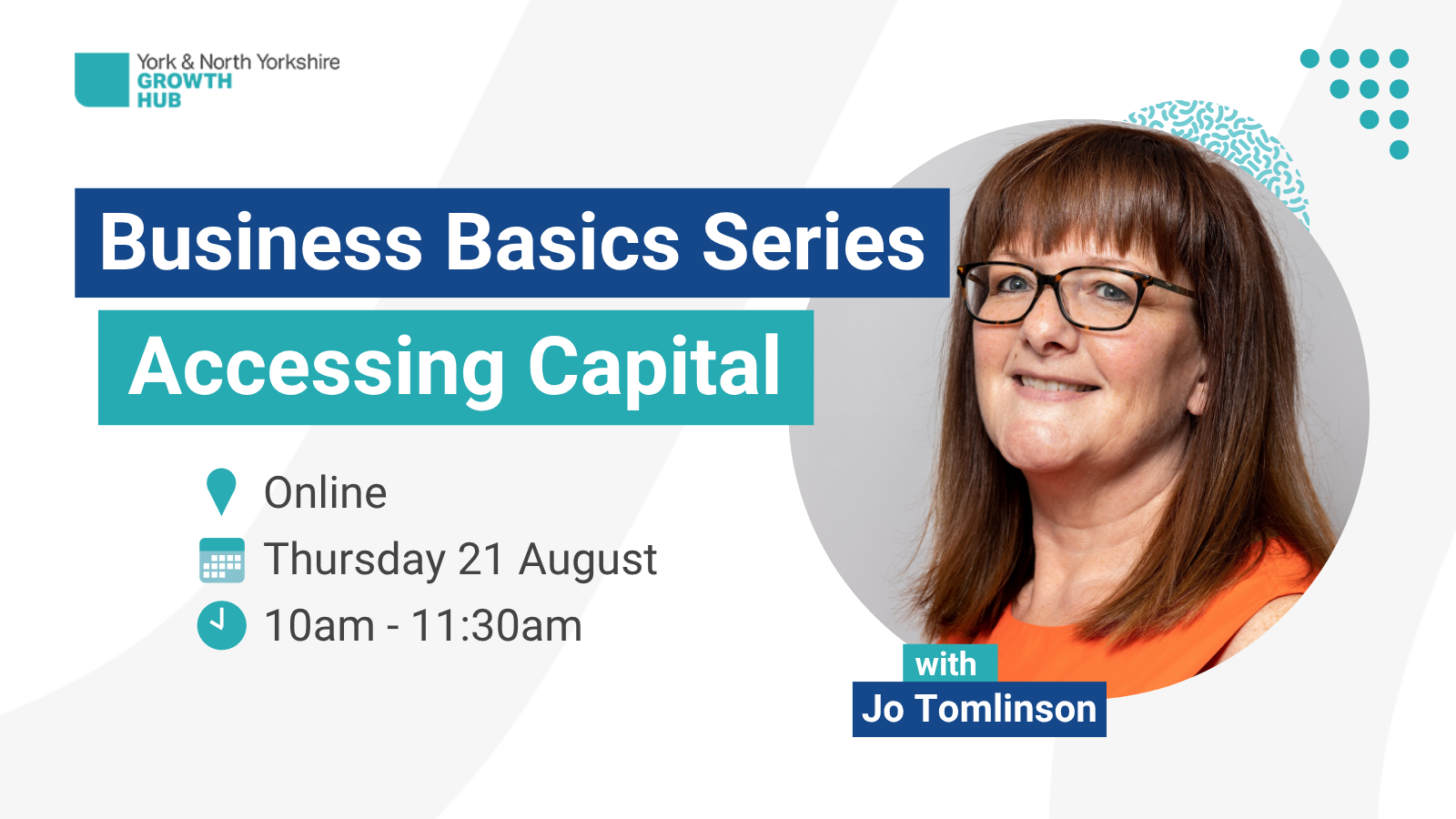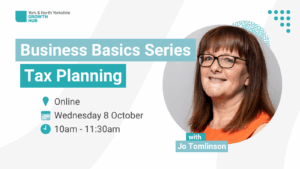Owning a Business: An introduction to what you need to know
Owning a business comes with much responsibility and red tape. This workshop offers an insight into what these are, and how you can best deal with them to avoid getting into trouble. This workshop is aimed mainly at the owners of Limited Companies, but much of the content is relevant to other business formats too.

You may have three different roles in your business. A Director, a shareholder and an employee. Your rights and duties will depend on which of these roles you have.
Directors Duties
This can be a highly complicated area, so I would always recommend seeking professional advice on anything you are unsure of. A high-level summary of directors duties is listed out below.
Directors: there must be at least one Director in each Limited Company in the UK. Often there are two or more and these make up the Board of Directors. This Board of Directors will make strategic and operational decisions for the company as well as ensuring it meets its statutory obligations. Decisions are often made at board meetings, so as a director, you may be required to attend and participate in board meetings
The board may delegate certain powers to individual directors.
The general duties of Directors are covered by the Companies Act 2006.
Act within powers: On incorporation (the act of creating a limited company) the company would have to supply articles and memorandum of association.
- The memorandum says who the initial shareholders are, amongst other things
- The articles are a set of rules about how the company will be run. Including its purpose and structure, and the rights and responsibilities of its members and directors.
Most small businesses would take “off the shelf” standard articles and memorandum of association which will have the standard legal responsibilities of all companies in them, plus state that the purpose of the company is to trade. However, yours may say something different and if it does, it’s important to know what this is, and then act within those rules.
Some companies like Community Interest Companies (CIC’s), must state their specific purpose in their articles.
Promote the success of the company: Often known as the section 172 duty.
- Acting in good faith
- Generally considered to mean increasing the value of the company in the long term
Exercise independent judgement: Make your own decisions.
Exercise reasonable care, skill and diligence: That of a reasonably diligent person expected to carry out your role in the company.
Avoid conflicts of interest: To avoid exploitation, property, information or opportunity. You must consider:
- Multiple directorships
- Advisory positions
- Making personal use of information or opportunities
- Connected persons – especially spouses and family members
Not accept benefits from third parties given because you are a director.
Declare any interests in proposed or existing transactions or arrangement.
Other duties:
- Under common law there is a duty of confidentiality
- Directors are responsible for the health and safety of the company’s employees and all the associated legislation
- There is also an obligation to the environment, competition and anti-corruption legislation
Insolvency: Directors should seek advice as soon as possible if the company is experiencing financial difficulties, otherwise they could become personably liable. This is a hugely complex area, so you should always seek advice.
As well as your other duties, as a director you have a duty to your creditors. The directors may need to contribute financially if:
- They should have known that there was no reasonable prospect of avoiding liquidation
- They didn’t take every step available to minimise the potential loss to creditors
If, as well as the above, there is deemed to have been a degree of dishonesty too, then the director may also face criminal proceeding.
Accounting, bookkeeping and Tax
When you incorporate a Limited Company of any kind, Companies House will inform HMRC that you have done so, and you will receive a letter from HMRC, posted to your companies registered office, providing you with a company Unique Tax Reference number (UTR) and informing you that you are now liable for corporation Tax.
The company directors have a responsibility to ensure that the corporation tax return is submitted on time and that any tax owed, is paid. In most cases the company director will hire an accountant to prepare the tax return, but the responsibility remains with the directors. Responsibilities include:
Record Keeping: Also referred to as bookkeeping
a. You must keep accurate records
b. You must provide evidence associated with your records
- Bank statements
- Receipts
- Invoices
- Leases and other documentary evidence of liabilities
- Mileage logs
- Any apportionment methods use
c. You must take reasonable care that these records are correctly accounted for
d. You can do your own bookkeeping; however, you need to be aware that if you make a mistake, HMRC are able to charge penalties for any tax owed and interest. You are expected to use the services of a competent professional to advise you, so that everything is accounted for correctly.
e. Software – Most businesses now use software for their bookkeeping. It is not yet a legal requirement for all taxes but will be as Making Tax Digital (MTD) rolls out. So, you may want to use bookkeeping software now, so that you are:
- Ready for MTD
- Less likely to make mistakes
- Can take advantage of all the functionality of bookkeeping software to run your business
f. If your sales of taxable supplies exceed £90k, you must register for VAT and charge VAT at the correct rate on everything you sell. You can reclaim VAT on business related expenses, but you must have a valid VAT receipt. It is important to accurately account for the VAT on your transactions in bookkeeping software as VAT must be filed digitally under the rules of Making Tax Digital.
Deadlines: There are many deadlines that a limited company must meet, I will cover the main ones for Companies House and HMRC here. If you fail to meet most of these deadlines, there will be a financial penalty imposed on the company. Some of these are significant.
Companies House
- Accounts to be filed within 9 months of the year end (unless the accounting period is different to 12 months).
- There is a limited amount of information that must be provided on these accounts if you are filing abridged or micro-entity accounts
- You must file something, even if your company has never traded (dormant company accounts)
- Confirmation Statement: You must file one of these at least every year, even if nothing has changed. There is a fee of £34 to file a confirmation statement online.
- Changes to the information on Companies House: Most changes to the records Companies House hold for your company should be made within 14 days of the change.
HMRC
- Tax return and Company Accounts: 12 months from the year end
- Payment of Corporation Tax: 9 months and 1 day after the year end
- VAT returns: One calendar month and 7 days after your VAT accounting period. The deadline for paying and VAT due is the same date.
- PAYE: Under RTI you must submit your PAYE information on the day your employees are paid. The payments under PAYE are due by the 22nd of the next tax month if you pay monthly
- Self-assessment: if you are paid dividends, or in some other circumstances, you will need to submit a self-assessment tax return and pay any tax due by the 31st January of the tax year that ended on the 5th April of the previous year. You may also have to pay a payment on account both at the end of January and the end of July
Money Earned in The Business
Whilst you may own 100% of the business, the money in the businesses bank account isn’t the same as your own. If the business is a Limited Company, or one of the other company structures registered on companies House, it is a different legal entity to you, and the money in its business bank account belongs to that legal entity. You must:
- Ensure you have a separate bank account or bank accounts for the business. This is a legal requirement for Limited Companies.
- Before you take any money out of the business bank account for your personal use consider:
- Is the business still able to meet all financial liabilities after you make the withdrawal?
- What legal route are you using to make the withdrawal?
- Is the method you are using to make the extraction tax efficient?
As a business owner you have 4 different cash extraction methods available to you.
- Payroll – you can be on the payroll of the business, receiving net pay, just the same as any other employee. You would need to report these payroll transactions to HMRC in line with RTI legislation
- Expenses – if you have personally paid for things that are business expenses, then you can re-imburse these expenses. This includes business related milage in your own vehicle
- Dividends – issued from post-tax profits, these are taxable and are entered onto your self-assessment tax return to be assessed for tax along with all other earnings in that tax year.
- Directors Loans – When starting up a business. The owners often put in some cash to get the business off the ground. This sits in an account called the Directors Loan Account. Withdrawals from this account do not impact tax, unless the account goes overdrawn. If a Directors Loan Account becomes overdrawn, the company may have to pay additional tax (s455 tax) and the director may need to submit a P11D which will result in a personal tax liability.
Employing People
Employing people comes with it a whole raft of responsibilities. It is advisable to employ the services of an HR (human resources) specialist if you are unsure about your responsibilities as an employer, as the rules in this area are complex and constantly changing.
A summary of some of your responsibilities is below:
- Employees have a legal right to an employment contract. This protects you as well as your employees, so you should ensure it covers all the necessary clauses. You need to be aware that a contract of employment can also be influenced by other things including:
- The job advertisement
- The interview
- The job description
- Custom and practice
- National Minimum Wage (NMW): you must pay at least the NMW
- Working Time Directive: rules on how many hours someone can work per week
- Holidays: Different rules for casual workers and those on regular contracted hours. But every full-time employee is entitled to time off with pay for the equivalent of 5.6 weeks per year.
- Pension Regulations: You must automatically enrol certain employees into a pension scheme and contribute into that pension scheme on the employee’s behalf. You must pay any pension deductions from employees plus your employers’ contributions over to your pension provider
- Eligibility to work in the UK: You must check each employee’s eligibility to work in the UK and keep records of this for inspection.
- Payroll: you must register as an employer with HMRC and then run a payroll each pay period, providing information to HMRC each time.
- You must make deductions for tax and national insurance from employees pay according to normal payroll rules and pay these deductions over to HMRC by the 22nd of the following month
- You must pay employers national insurance and pay that over to HMRC by the 22nd of the following month
- You must pay statutory sick pay and statutory maternity/paternity pay in certain circumstances
- Employees must be given a payslip for each pay period detailing what they have been paid and any deductions from this pay.
- If you employ anyone, the business must have employers’ liability insurance.
Insurances etc
It is advisable to discuss the nature of your business with an insurance broker who can fully appraise the risks associated with it and recommend the necessary insurances policies.
- Professional indemnity insurance: You may be required to produce your certificate before you can do any work for another business. But it is advisable to have this to protect your business either way. Most professional bodies will also require this before they will provide a practicing certificate
- Public Liability insurance: Protects against accidental injury and property damage from customers, visitors etc
- Employers Liability insurance, as mentioned above, is a legal requirement if you employ anyone
- Buildings and contents insurance: If you have business premises and equipment. If you are in rented or leased premises, you should check your lease/rental agreements as to what insurances you need to provide.
- Directors and Officers insurance: In case a claim is made against the company’s directors or officers
- Relevant life insurance: For certain personnel in crucial business roles
- Shareholder insurance: In case a shareholder dies and the beneficiary of their Will needs to be paid for the value of their shares to allow the business to continue trading.
Owning a business, depending on the type of business you own, comes with lots of responsibilities, rules and deadlines. It is worth using the services of experts who can guide and support you.
Sign up to our FREE webinar; Owning a Business: An Introduction to what you need to know happening on 30 January, 10am-11:30am
Autumn Budget 2025 – How will it impact your business?
The Autumn Budget, announced on 26 November 2025, introduced a range of changes that business owners need to be aware of. From updates to taxation and compliance rules, to adjustments in incentives and support schemes.
Risk and Resilience in Your Business
Running a business can be risky. There are so many things that can impact your performance, and profit. Potentially destroying all that you worked so hard to build. Some of these things are impossible to plan for, but lots of potential risks can be mitigated by identification and planning.
Business Basics – Cash Flow v Profit
Many small business owners can get confused when looking at numbers relating to their business, and often this is due to cash and profit being understood as one and the same thing. It is crucial to understand the difference between these two metrics so that decision making is not flawed.
Business Basics – Project Evaluation
Projects can be anything from taking on a new person, or launching a new product, to building a manufacturing site, or acquiring a business to merge with the current one. How you evaluate each project can vary depending on size and complexity. But undertaking the exercise leads to better decision making and control.
Building Resilience and Sustainability into your Farming Business
Resilience and sustainability lie at the heart of modern farm business strategies, ensuring that agricultural enterprises can withstand economic shocks, adapt to evolving environmental regulations, and maintain profitability amid climate volatility. By embedding sustainable practices, ranging from energy efficiency to regenerative soil management, farmers not only safeguard their livelihoods but also contribute to broader goals of food security and environmental stewardship.
Business Basics – Shared Ownership
Directors and shareholders of UK companies have many rights and responsibilities, but how do these change when you are one of a number of shareholders in a company?
Business Basics – Selling a Business or Shares in a Business
Being aware of your business's value enables you to determine a fair selling price for some or all of your shares and negotiate efficiently with prospective buyers. But where do you find a buyer for your shares, and what happens now?
Business Basics – How much is your Business Worth
Being aware of your business's value enables you to determine a fair selling price for some or all of your shares, negotiate efficiently with prospective buyers, and secure beneficial financing deals, among other advantages.
Business Basics - Forecasting
Although we don’t have a crystal ball, so forecasts are fundamentally informed guesses, businesses need to use them to make informed business decisions and develop business strategies.
Business Basics – Accessing Capital for Growth
Gaining access to outside investment means you don’t have to give up on your dream. So how do you prove to any potential investor that your business model is worth
Farm Diversification: Where to start
According to DEFRA, 71% of farm businesses in 2023/24 have some form of diversified activity, up from 61% in 2014/15. Income from these activities produced £1.393 billion in 23/24, up from £1.321 in the previous year. This demonstrates how important these income streams have become.
Business Basics – Making Tax Digital
Making Tax Digital (MTD) for Income Tax and Rental Income is the biggest change to Self-Assessment since it was launched by HMRC over 30 years ago.
Young Entrepreneur Guide
Do you have a business idea? Or do you want to work for yourself? Then the Young Entrepreneur Guide is here to help you!













